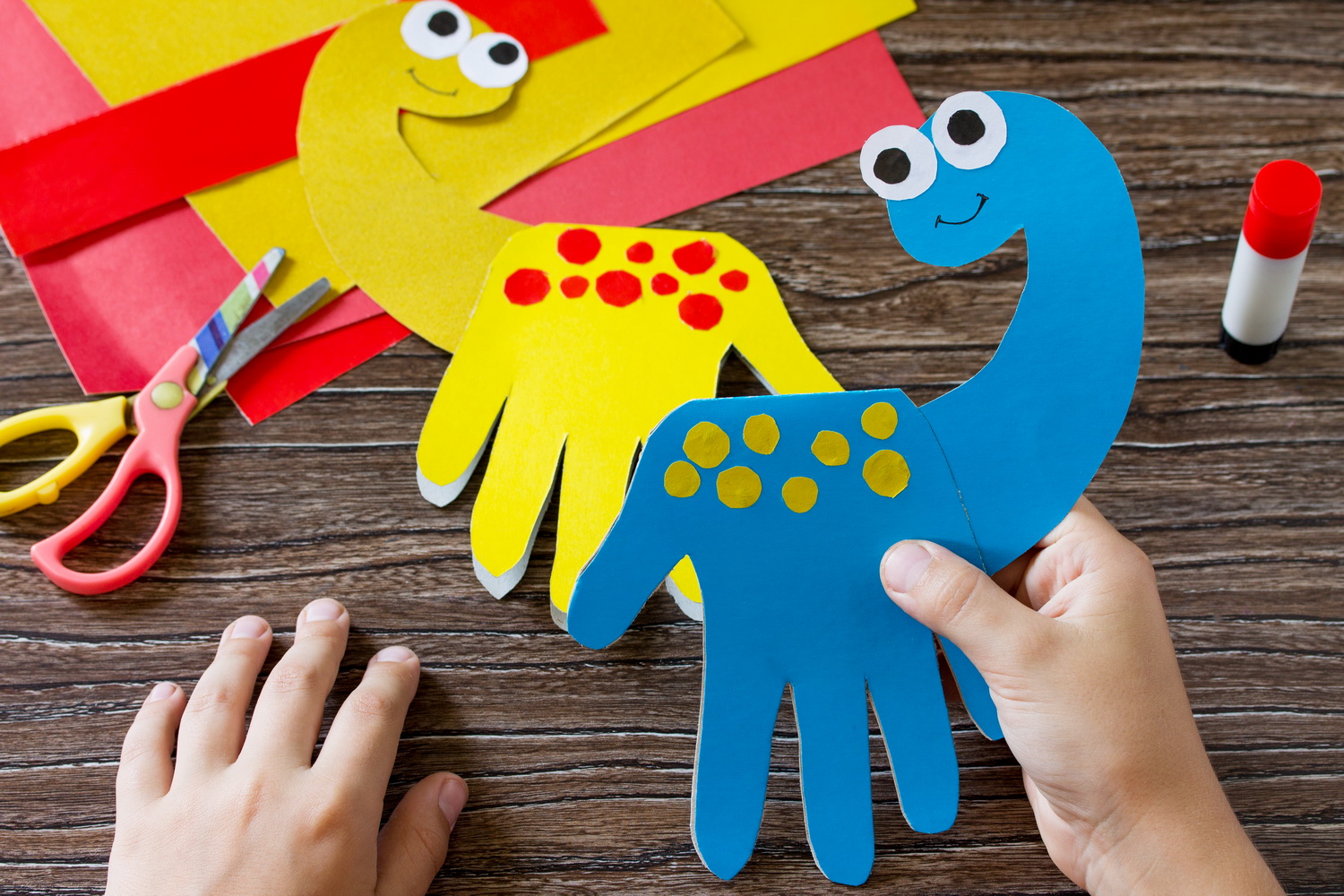Math Anxiety: 5 Ways to Help Children Persevere and Succeed
March 2, 2020
Math. There is probably no other school subject that strikes fear in the heart of children than math. As an adult, have you ever stopped wonder why that is? In America there seems to be at least two accepted viewpoints on the matter: that proficiency in math is necessary to secure a high-paying career, and yet most of us believe that we are either good at math or reading, but not both. So, by our own beliefs, does that mean that many of us are destined to be unsuccessful in life simply because of this acceptance that many of us are simply bad at math?
That said, it’s easy to see why some people, especially children, might be nervous about struggling with math. With the amount of pressure put on children to succeed in a subject area that can be tough to understand for some, anxiety is bound to happen for many kids.
So, what can parents and teachers do to combat math anxiety and help raise learners that overcome their challenges in the subject to succeed? First, let’s delve deeper into the causes of math anxiety and explore how it can affect our young learners as they grow. Then keep reading to find actionable strategies for overcoming it so students can truly achieve their potential in math and beyond!
What Causes Math Anxiety?
It is probably obvious to say that most people, both children and adults, experience math anxiety because they feel they just aren’t good at it. Sometimes society views math as a subject that is for inherently smart people, or geniuses. Once this type of low self-confidence creeps in, it could be hard to eradicate before a child shuts down or gives up.
But where does this low self-confidence even come from? Let’s take a look at some contributing factors:
- In math, there aren’t as many positive associates made with math before students start school. By contrast, most parents read to children before schooling ever begins, helping kids to form positive memories and associations with it.
- Math skills are completely new; when one operation or skill is learned, it must be mastered to understand the next. This can make it easy to become behind and feel lost.
.jpg)
- Societal stereotypes sometimes cause little learners to expect things that aren’t true. For instance, it is often believed (but isn’t true at all) that boys are better at math than girls. If students approach math believing this to be true, particularly for girls, they might shut down before they even get started learning a new skill.
- Some kids are under an enormous amount of pressure at home from parents to perform or get all “A’s”. This can make math anxiety a lot like test anxiety, because the child is unable to perform due to the fear of failure.
From the above list, it’s obvious that there are a variety of reasons some kids develop math anxiety, but once it sets in, how does it affect students throughout their lives? Let’s take a closer look at the effects of math anxiety and how it can potentially derail certain educational or professional outcomes.
The Effects of Math Anxiety on Students
It probably goes without saying that math anxiety tends to have a negative effects on performance in class. However, once it sets in, it’s important to reduce or remove it as much as possible before other ill effects occur. For instance, if children with math anxiety continue to struggle with it as they grow older, the following could potentially happen:
- Low self-esteem could develop and spread to other subject areas
- Students may lose interest in school
- Kids may develop what psychology labels a “self-fulfilling prophecy”. This means that if a child believes that he or she will not be successful, they ultimately will not be successful due to a lack of effort or clouded judgement
- Students may fall behind and find themselves unsuccessful in advanced math courses in high school, including and especially in algebra
- Children may not apply themselves in school in general, and may not strive to follow their dreams career-wise, thinking those dreams may be out of reach
Obviously, the effects of math anxiety can be far-reaching if it’s allowed to fester and continue the older the child grows. Thankfully, there are strategies to use for building confidence by overcoming math anxiety.
Strategies for Overcoming Math Anxiety
Getting over math anxiety is no easy task no matter the age. Think of the following techniques as treatment for math stress. Just like with any other type of anxiety, students need some effective tools for coping with it. Try the below techniques to help your kids overcome this tricky challenge:
.jpg)
Use mnemonic devices, songs, and visual cues
Mnemonic devices are techniques that can be used to help kids remember math operations. They can take the form of catchy phrases or movements that are easy for elementary students to learn and remember. In addition, make full use of songs, dance, and visual cues or aids to help kids learn math. Not only do these strategies foster positive connections and emotions, they help make children more comfortable, strengthening a bonds with parents at home, or with teachers and peers in the classroom.
Praise, praise, praise!
All too often, parents and teachers tend to complement a child’s natural talents instead of what really should be praised: their hard work, effort, and gains. When we praise a kid for doing something they’re already good at, it completely ignores the hard work they do to grow their skills. To ease anxiety, all students should know and understand that growth in any challenging subject area can be a struggle, and that everyone faces challenges within certain areas of life. This is completely normal! What should be praised is their perseverance to overcome their struggles. Once students overcome a challenge to master a skill, praise kids for it, and praise often! In turn, this should make kids more comfortable and less anxious about tackling new tasks.
Teachers: encourage parents to practice math at home
As it was mentioned above, math isn’t quite like reading. From the time a child is born, even as infants who do not know language yet, parents are encouraged to read nightly to their kids. This makes sense because kids have a lot to learn before they can enter formal schooling! While parents often practice saying and counting numbers with kids, when it comes to skip counting, adding, and subtracting, most leave that up to teachers.
As an educator, you may have favorite websites that students can use to practice math at home. These can be sites like Kids Academy, as we offer free resources like Math worksheets, lessons, and videos for kids to use, as well as a learning app. If your district also has access to sites like Reflex Math, take full advantage of platforms that use fun and games as a way to reinforce math skills. Ensure that parents know how to help their children login and access the content at home.
Parents: practice math at home!
It’s easy to understand why parents may be at a loss to help kids practice math at home. With reading it’s easy: just choose children’s books and start reading! But with math, many parents are unaware of the most popular resources available to them. If you’re looking for quality online math games or worksheets, check out the following:
- Kids Academy: Don’t forget that free worksheets and videos can be found on our website and YouTube channel! Take full advantage of all we have to offer to help your child with math, and consider trying out the Talented and Gifted app, which can give your kids instant feedback and an individualized learning path.
- Khan Academy: This website is completely free and uses interactive video lessons and practice activities to support learning. This site is great for students in kindergarten and up.
- Learn Zillion: Here’s another website that utilizes fun and engaging videos to entice struggling learners to grow their skills. Recommended for 2nd grade and up, parents can create a free account to use at home.
- Math Playground: Help your child build positive associations with math by offering exciting free online games! Math Playground offers free games without needing to create an account.
Foster a Growth Mindset and Dispel Myths
Unfortunately, our society is rife with stereotypes and myths about many topics, including math. Take a look at some of the most prevalent myths that exist amongst parents and students alike:
- Boys are better at math than girls
- Some people just aren’t good at it
- There is only one way, or one right way to complete math problems
- People who are good at it can do all problems quickly and in their heads
- Counting on fingers is bad
- You must have a good memory to succeed in math
It’s easy to see how any of the above myths can contribute to a child’s lack of self-confidence in math, especially if a student has faced some setbacks or struggled with understanding the basics. That’s why it’s important to ensure that children understand that if they faced some difficulties, it does not mean that they are bad at math.
Instead, strive to instill a growth mindset. In fact, we’ve already talked about this topic at length here. In short, it means that kids should look at their work as a starting point, with mastery as the goal. They should know that experiencing setbacks is normal, and to grow their skills, they must work through the challenges.
For parents and teachers, reducing math anxiety should be at the top of the list when brainstorming solutions to many of the issues that plague our little mathematicians. By understanding the nature of the problem at hand, and employing some of the above techniques, your children can banish math anxiety once and for all!











